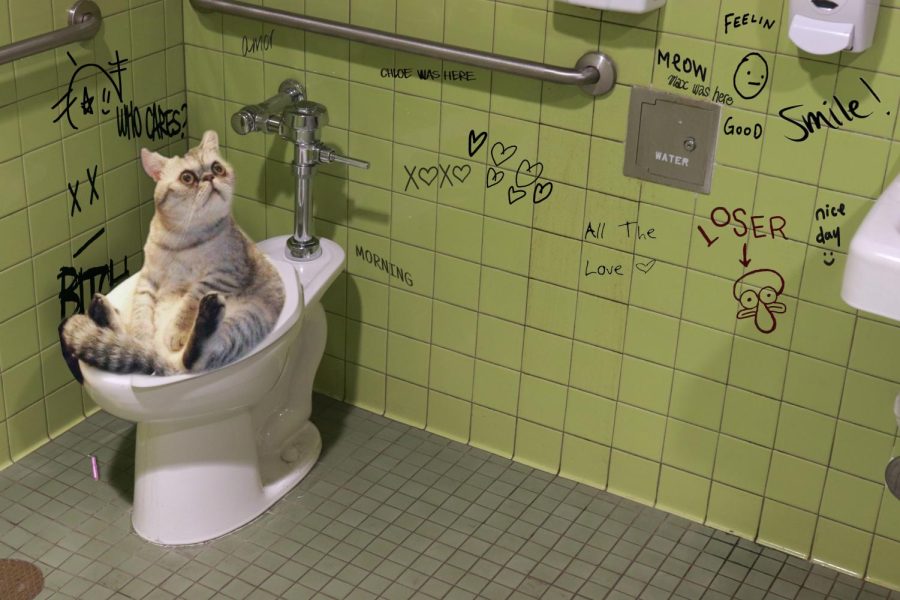Why Flushing Cat Poop Down Your Toilet Can Cause Problems - Tips for Safe Disposal
Why Flushing Cat Poop Down Your Toilet Can Cause Problems - Tips for Safe Disposal
Blog Article
Everybody will have their private conception when it comes to Can You Flush Cat Poop Down The Toilet?.

Intro
As cat owners, it's necessary to be mindful of how we get rid of our feline buddies' waste. While it might seem hassle-free to purge feline poop down the bathroom, this method can have damaging consequences for both the environment and human health and wellness.
Alternatives to Flushing
Thankfully, there are more secure and much more responsible ways to deal with pet cat poop. Take into consideration the adhering to alternatives:
1. Scoop and Dispose in Trash
The most common method of throwing away feline poop is to scoop it into a biodegradable bag and throw it in the garbage. Be sure to utilize a dedicated clutter inside story and throw away the waste quickly.
2. Usage Biodegradable Litter
Opt for naturally degradable pet cat clutter made from products such as corn or wheat. These trashes are environmentally friendly and can be securely thrown away in the trash.
3. Hide in the Yard
If you have a yard, think about burying pet cat waste in a designated area away from vegetable gardens and water sources. Make certain to dig deep enough to avoid contamination of groundwater.
4. Set Up a Pet Waste Disposal System
Invest in a family pet waste disposal system especially designed for cat waste. These systems make use of enzymes to break down the waste, minimizing smell and environmental effect.
Health Risks
Along with environmental worries, flushing feline waste can additionally position health dangers to people. Cat feces might include Toxoplasma gondii, a parasite that can cause toxoplasmosis-- a potentially severe health problem, especially for expectant women and individuals with damaged body immune systems.
Environmental Impact
Flushing pet cat poop presents unsafe microorganisms and parasites right into the water, positioning a significant danger to marine ecosystems. These contaminants can negatively affect aquatic life and concession water quality.
Final thought
Responsible animal ownership expands beyond giving food and sanctuary-- it also includes proper waste administration. By refraining from flushing pet cat poop down the toilet and going with alternative disposal techniques, we can minimize our environmental impact and shield human health.
Why You Should Never Flush Cat Poop Down the Toilet
A rose by any other name might smell as sweet, but not all poop is created equal. Toilets, and our sewage systems, are designed for human excrement, not animal waste. It might seem like it couldn’t hurt to toss cat feces into the loo, but it’s not a good idea to flush cat poop in the toilet.
First and foremost, assuming your cat uses a litter box, any waste is going to have litter on it. And even the smallest amount of litter can wreak havoc on plumbing.
Over time, small amounts build up, filling up your septic system. Most litter sold today is clumping; it is made from a type of clay that hardens when it gets wet. Ever tried to scrape old clumps from the bottom of a litter box? You know just how cement-hard it can get!
Now imagine just a small clump of that stuck in your pipes. A simple de-clogger like Drano isn’t going to cut it. And that means it’s going to cost you big time to fix it.
Parasitic Contamination
Believe it or not, your healthy kitty may be harboring a nasty parasite. Only cats excrete Toxoplasma in their feces. Yet it rarely causes serious health issues in the cats that are infected. Most people will be fine too if infected. Only pregnant women and people with compromised immune systems are at risk. (If you’ve ever heard how women who are expecting are excused from litter cleaning duty, Toxoplasma is why.)
But other animals may have a problem if infected with the parasite. And human water treatment systems aren’t designed to handle it. As a result, the systems don’t remove the parasite before discharging wastewater into local waterways. Fish, shellfish, and other marine life — otters in particular — are susceptible to toxoplasma. If exposed, most will end up with brain damage and many will die.
Depending on the species of fish, they may end up on someone’s fish hook and, ultimately on someone’s dinner plate. If that someone has a chronic illness, they’re at risk.
Skip the Toilet Training
We know there are folks out there who like to toilet train their cats. And we give them props, it takes a lot of work. But thanks to the toxoplasma, it’s not a good idea.

Do you like reading about How to Dispose of Cat Poop and Litter Without Plastic Bags? Leave feedback further down. We would be interested to know your responses about this page. We hope to see you back again in the future. Sharing is good. One never knows, you could be doing someone a favor. Thanks for going through it.
Book A Service Report this page